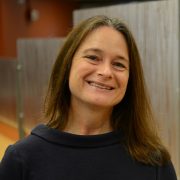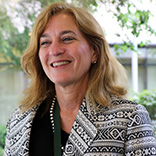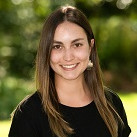Agenda
This track is designed for individuals interested in learning about clinical research from a research staff perspective.
This track is designed for individuals interested in learning about clinical research from a research staff perspective.
12:00-1:00 pm PDT
In this session, attendees will learn about eight ethical benchmarks for clinical research and practice applying them to real-life case examples, with a focus on the role of researcher-participant interactions.
Stephanie A. Kraft, JD, is an Assistant Professor at the Treuman Katz Center for Pediatric Bioethics at Seattle Children’s Research Institute and the University of Washington School of Medicine Department of Pediatrics. She conducts conceptual and empirical research on issues related to building trust between researchers and participants and improving informed consent for research. She is also part of the ITHS Research Bioethics Consultation service.
Her primary research interests are in understanding how people make decisions about research participation and improving how research teams demonstrate respect to and build trust with potential participants, especially among historically underrepresented patient populations.

12:00-1:00 pm PDT
This session will provide an introduction to the OnCore Clinical Trials Management System (CTMS). Users will be introduced to the current functionality of protocol and subject management and the upcoming financials management areas. The session will focus on how the CTMS can enhance collaboration between study teams and the institutions to enhance clinical research operation.
Molly Van Rheen has over 10 years of research experience including lab, animal, and human subject research as a study coordinator. She worked previously at the University of Colorado managing the OnCore system. Starting in late summer 2019 she joined the Fred Hutch Cancer Research Center, University of Washington, and Seattle Cancer Care Alliance as the CTMS Program Director.

12:00-1:00pm PDT
It is essential for research staff to understand fundamental concepts and terminology common to clinical trial protocols. This session will go over sample protocols and describe strategies for reading protocols to maximize study success.
Amy Good, PhD is the Implementation Manager for the Research Coordination Center at the University of Washington, Clinical Trials Office. Amy leads a team of research coordinators who support the conduct of clinical and translational research at University of Washington and other institutions in the Seattle area. The team provides creative staffing solutions to meet the needs of investigator-initiated and industry-sponsored clinical research projects.
Amy received her PhD in Clinical Psychology with a specialization in rehabilitation and behavioral medicine. She has been involved in health-related research for 20 years.

12:00-1:00pm PDT
This session will introduce attendees to ClinicalTrials.gov and its importance in the clinical research process. We’ll discuss the contents of ClinicalTrials.gov; legal, NIH, and publisher requirements for submitting data; and how this resource benefits researchers and the public. In illustrating the benefits of ClinicalTrials.gov, we’ll focus on its role in increasing the transparency of clinical research and how that contributes to sound scientific practices, public accountability, and opportunities for patients.
Diana Nelson Louden is the Life Sciences Librarian for the University of Washington Libraries. In this capacity she supports faculty, students, and staff in the life sciences disciplines by providing research assistance and instruction on effectively using information resources. Special interests include participating in systematic review projects, helping people describe the impact of their research, and open science.
Diana joined the University of Washington Libraries in 2012 after spending 17 years as a biomedical research and patent librarian at a biotechnology company in Seattle. She holds a bachelor’s degree in biology and a master’s degree in library science.

12:00-1:00pm PDT
Innovation and study success depends not on the combining of the best people (team of experts) but on creating a psychologically safe environment for team members to collaborate (an expert team). A creative team environment can be intentionally created and anyone can contribute to that creation. Collaborative problem solvers are made—not born. This session will provide insights and resources focused on starting your team off on the right path and highlight the specific behaviors that drive team success. You will walk away with both tools and resources to increase your team’s effectiveness and efficiency.
23 MBPRESENTATION – Increase Study Success Through Integration of Team Science Competencies44 KBHandout: Research Study Charter Facilitator version35 KBHANDOUT: Research Study Charter blank102 KBHANDOUT: Project Roles Chart12 KBHANDOUT: Meeting Roles163 KBHANDOUT: Welcome Letter Example635 KBHANDOUT: Empathic Communication Skills271 KBHANDOUT: Competencies for Translational Science Teams319 KBHANDOUT: Emotional Intelligence Questionnaire28 KBHANDOUT: Personal Style Inventory PSI Instructions Link to Myers-Briggs Company Website
Jennifer Sprecher is the Director of Lean Performance for ITHS. She works with organizational internal and external team members to develop strategic plans, and implement process improvement and aligned and prioritized initiatives.
With a background in Industrial Engineering, Ms. Sprecher has been working with process improvement for over 25 years using methods including Lean, Lean‐Sigma, Plan Do Check Act and 6S (workplace organization). She works with organizations to implement concepts of project management, measurement systems, change management, benchmarking, and team problem solving to improve organizational performance.
Ms. Sprecher’s measurement and strategic planning uses concepts from Balanced scorecard, Hoshin planning, and cascaded dashboards. Ms. Sprecher is a certified Six Sigma Black Belt.

Nicole Summerside, MHA is a Manager of Program Operations for the UW Center for Health Sciences Interprofessional Education, Research and Practice (CHSIE). She delivers program management and support, working to facilitate collaborative environments and team-based care in healthcare settings (research and practice) to improve team functioning, relationships, and patient and system outcomes. Nicole’s background is in Health and Business Administration.



